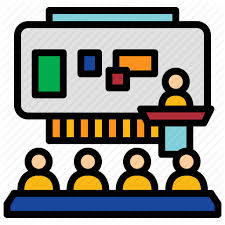The role of ict in efl classroom
Abstract
We cannot imagine our daily routine without the use of technologies, smart devices which have been around us in all spheres of our life for many years. With the development of the ICT, a vast number of educational platforms and software that can be used in education have been created. Using technology in language learning has become the perfect tool in reaching proficiency and fluency, and English lessons accompanied by technological support are the most effective and attractive for students who want to be successful in their language learning. In this article, I will discuss the methods of using ICT with the help of some educational platforms and software programs which can be used effectively in language teaching and learning.
References
Gareth Davis (2009) Interactive White boards
Unesco., (2015) ICT competency framework for teachers, 2015 (http://unesdoc.unesco.org/images/0021/002134/213475e.pdf)
Baskin, B. H.; Harris, K. “Heard any Good Books Lately? The Case for .Audio Books in the Secondary Classroom”, Journal of Reading, 38.5, 1995, págs. 372-376. Print (Available in PDF format through the APA: http://www.audiopub.org/resources/Baskin_JOR1995.pdf).
Beers, K. (1994) “Listen While You Read: Struggling Readers and Audio books”, School Library Journal, 998, Available online through Audio Bookshelf: http://www.audio bookshelf.com/listen.html
www.edmodo.com
www.kahoot.com

In submitting the manuscript to the International Journal on Integrated Education (IJIE), the authors certify that:
- They are authorized by their co-authors to enter into these arrangements.
- The work described has not been formally published before, except in the form of an abstract or as part of a published lecture, review, thesis, or overlay journal.
- That it is not under consideration for publication elsewhere,
- The publication has been approved by the author(s) and by responsible authorities – tacitly or explicitly – of the institutes where the work has been carried out.
- They secure the right to reproduce any material that has already been published or copyrighted elsewhere.
- They agree to the following license and copyright agreement.
License and Copyright Agreement
Authors who publish with International Journal on Integrated Education (IJIE) agree to the following terms:
Authors retain copyright and grant the International Journal on Integrated Education (IJIE) right of first publication with the work simultaneously licensed under Creative Commons Attribution License (CC BY 4.0) that allows others to share the work with an acknowledgment of the work's authorship and initial publication in this journal.





1.png)
